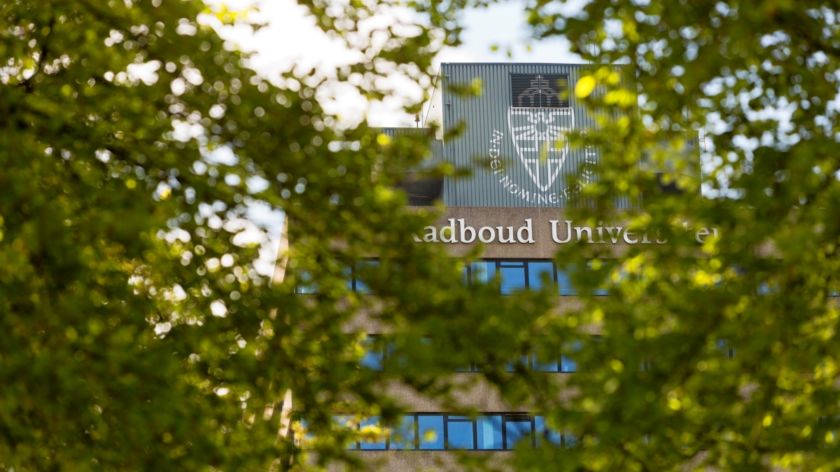Van Rijn recommendations bad news for Radboud University
-
 © Dick van Aalst
© Dick van Aalst
The government should increase funding to technical universities, to the detriment of comprehensive universities. This is one of the conclusions of the Van Rijn advisory committee that today presented its report. Radboud University would consequently face cuts of 10 million euros, an extremely worrying prospect.
The Van Rijn committee was set up to look into the funding of Dutch higher education. Chaired by Martin van Rijn, the committee has spent months working on the Wissels Om (‘Switching Track’) report that was handed over to Education Minister Ingrid van Engelshoven today.
Cut
The most striking measure proposed by the committee is to divide the sum of 70 million euros among the universities, starting next year. The advice: give the technical universities a larger slice of the cake by taking some away from the comprehensive universities. This would mean Radboud University facing a cut of 3.26 percent of the state funding, a cool 10 million euros. The Open University will be hit hardest, with a cut of 5.94 percent.
Delft Technical University, on the other hand, will be rubbing its hands in glee. According to the Van Rijn committee, the university should receive an increase in funding of 8.44 percent. Other universities to gain are Eindhoven, Wageningen and Twente. All other institutes will lose out.
“There is a large gap between the educational capacity and employment market demand in science and technology,” is how the committee justifies its recommendations. “If this problem is not solved, the Dutch knowledge economy will suffer greatly. Starting next year, money must be redirected to universities with a great many science and technology students.”
Many questions
In a brief response, Radboud University writes that “an initial reading of the report raises many questions”. “Just as the Association of Universities in the Netherlands (VSNU), we are deeply concerned about the consequences of the recommendations for the humanities and medical sciences, and for our programmes in particular. (…) There is a danger that the recommendations in this report will not only create new issues, but also exacerbate existing ones.”
A statement by the Association of Universities in the Netherlands (VSNU), through its chairman Pieter Duisenberg, said that the proposed budget increases for science and technical studies “are welcome” but that the association is concerned about the “distressing cuts” in the humanities and medical sciences, and the grave negative consequences of that. Duisenberg: “These are disciplines of great social importance that are already suffering from high pressure of work and other issues.”
Competition
A redistribution of state funding to universities is not the only measure proposed by Martin van Rijn and his colleagues. The committee also wants to put an end to the fact that current funding is too heavily determined on the basis of student numbers. “This growth stimulus needs to be reduced and the fixed education funding increased to ensure more stability,” the commission writes.
Competition has also become excessive in the area of research funding, according to Van Rijn. The first of these monetary flows must increase at the cost of the second: the proposal is to transfer 100 million euros from research finding organisation NWO to the universities themselves.
Another cornerstone of the advisory report is insight into the costs of education and research. “Without this transparency, discussions about costs and quality in higher education are not sufficiently binding. There is a real need for a thorough cost investigation.”
Core task
In a personal response by telephone, Marijtje Jongsma of VAWO academic union says that she reads both positive and negative things in the report. “I think the problem analysis is good and sound. The committee has listened to the concerns from the field, for example with regard to excessive competition and pressure of work.” There are also some recommendations that she wholeheartedly supports, such as the need for transparency about universities’ substantiation of costs.
And she is positive about the transfer of 100 million euros from NWO to the first monetary flow. “That will provide more financial leeway and hopefully tackle the problems of temporary appointments and hyper-competition.”
She is less enthusiastic about the plan to immediately start shifting money from comprehensive to technical universities. “First carry out that cost investigation before flicking any switches.” What’s more, there may currently be more demand for graduates from professional study programmes, but educating generalist, critical-thinking academics is a major social core task of universities. And that is now being put under pressure.



